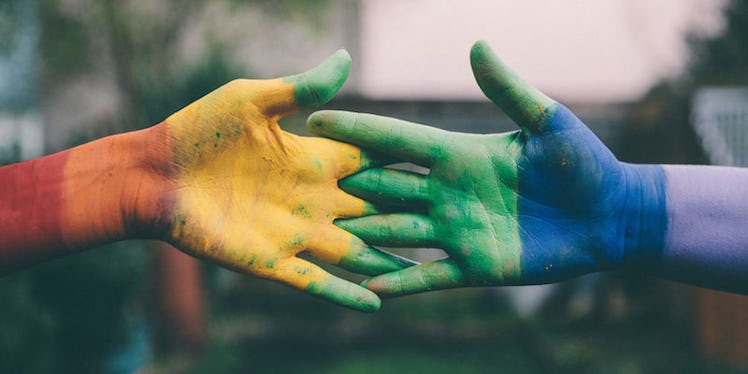"Are you going to start dressing like a woman now?"
"The kinds of people you are hanging out with in college are brainwashing and manipulating you into this. This is a phase."
"Don't ever think about bringing a guy home to me. I never want to see that."
These were the types of comments I was slapped with when I came out to my mother during my freshman year of college. I was alone, hopeless and simply seeking the love and support I had expected to receive from my family. I had just had my heart broken by my first love, and all I needed was to crawl back into the maternal warmth of my mother's arms.
Things did not go the way every coming out video on YouTube told me it would, and I was devastated with the aloofness I was bombarded with. The media glorifies the process of coming out by portraying it with so much positivity that we often neglect other coming out experiences.
Yes, I think it is good to tell personal narratives that are empowering and encouraging. However, I also think it is important to present both sides of the story so that people can anticipate the worst.
Growing up in a traditional Taiwanese household, I was always close to my mother. My favorite part was going to Toys "R" Us on Sundays with her to pick out my favorite Barbie doll. I had a collection of Barbie dolls as a little boy, and was never for a second ashamed of it.
My parents were supportive of my passion for these dolls and never imposed on me toys such as cars, robots or anything else that are deemed to be more "masculine" toys. Thinking back now, I am flabbergasted by how openminded my parents were and how supportive they were of my decisions. Therefore, at a very young age, I was embedded with the idea that my parents were not homophobic and, in fact, very accepting of differences.
When I was 9, I moved to California with my sister and mother while my father stayed in Taiwan for work. We moved to the United States to pursue the American Dream: better education, better careers and overall better living conditions. As a result, the cultural and generational gap between my mother and myself exacerbated over the years.
It was when I began my American education that I relinquished all traces of my past with Barbie dolls and anything that alluded to remote residues of femininity. I have been name-called every name you could think of that a homosexual teen could be traumatized with. There was one specific instance that has been imprinted in my head, mainly because it wasn't discrimination from my peer, but from an educated adult.
Every year, my high school required every student to receive a routine health check-up from a doctor. My doctor was an Asian man, tall with glasses and a man of few words. But when he actually spoke, it was to ask me if I was gay.
"You don't have sex with boys, do you?" he speculated with a judgmental side-eye as he looked down on me. When I defensively denied, he responded, "Good. You don't want to conform to that kind of lifestyle. It's disgusting." Meanwhile, my mother stood by my side and witnessed everything happen. She did not speak a word.
The inevitable stigma that surrounds the LGBTQ+ community still undeniably exists, but the prejudice against homosexual Asians within the Asian community is even more substantial. The lack of an open platform to trigger conversations regarding sexuality and sexual identities is a common reason why Asian parents do not acknowledge or are not aware of homophobia.
Especially as a first generation immigrant, I have experienced the cultural gap I share with my parents when trying to communicate with them. What I've come to realize is there is absolutely no way my parents will ever accept me because of my "lifestyle" I "chose" to live.
I used to be very strong-headed when it came to defending my sexuality to my parents. I am an avid advocate of marriage equality and gay rights, especially since marriage equality does not exist in Taiwan yet. And I always had a sense of duty to somehow change my parents' views on homosexuality.
However, as I grew older, I chose to have compassion and understand where my parents are coming from instead. It is frustrating and disappointing to realize there is nothing I can do to change the way my parents view me. What I can do is try to educate my parents on what it means to be gay.
Being gay does not mean you will get AIDS. Being gay does not mean you will succumb to drug abuse. Being gay does not mean I will not be successful in life.
The misconception and negative connotations associated with homosexuality are the root of the embedded disapproval received from older generations. Instead of blaming them for their lack of knowledge on the subject, we need to surpass the media's portrayal of gay stereotypes that are simply not accurate depictions of homosexuality. It's up to us, Millennials, to educate them on what being homosexual means if we want to see change in the way we are viewed by the public and older generations.
